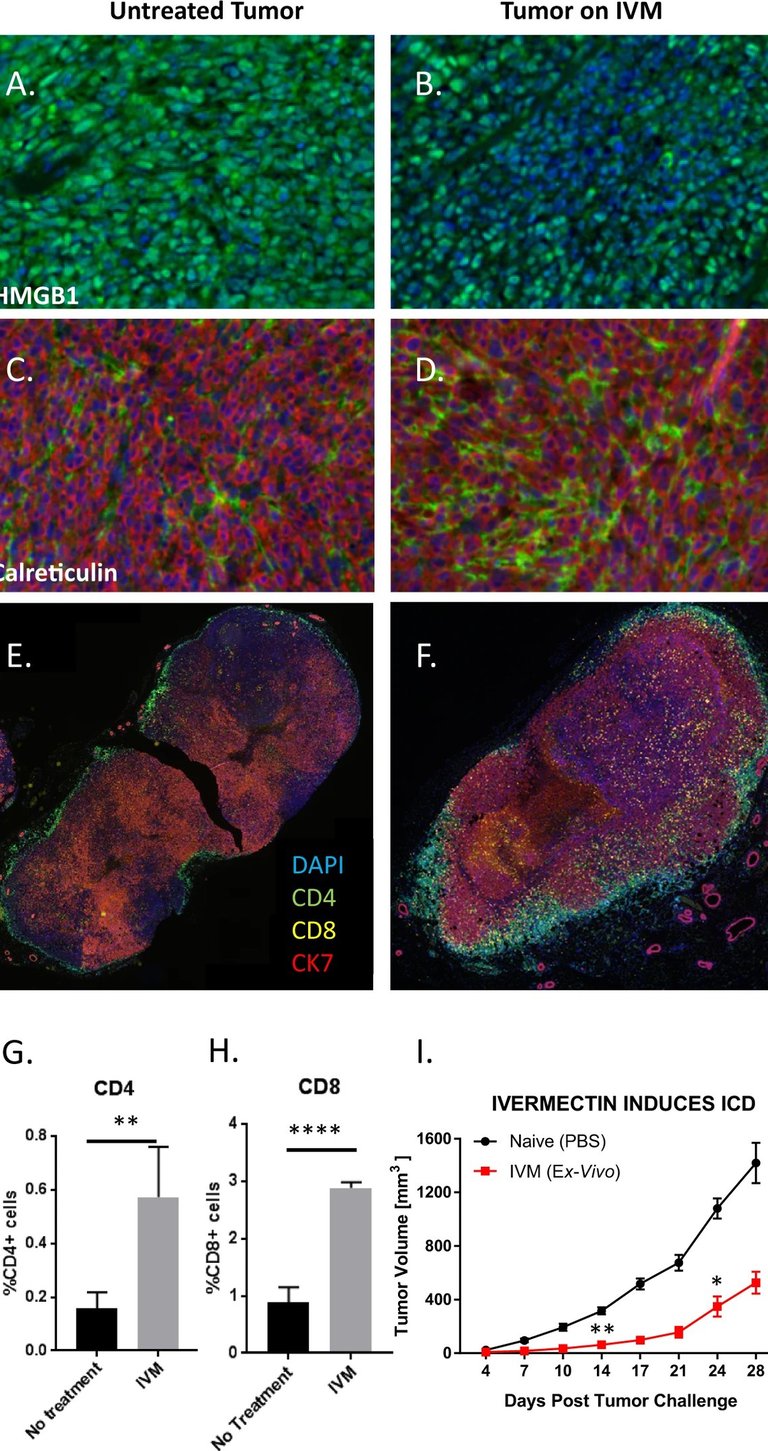Ivermectin: A Potential Breakthrough in Breast Cancer Treatment
HEALTH


Ivermectin Converts Cold Tumors Hot and Synergizes with Immune Checkpoint Blockade for Treatment of Breast Cancer
Breast cancer is a devastating disease that affects millions of women worldwide. Despite advances in treatment options, there is still a need for more effective therapies that can improve patient outcomes. Recent research has shown that ivermectin, a well-known anti-parasitic drug, may have potential as a treatment for breast cancer.
The Role of Ivermectin in Breast Cancer Treatment
Ivermectin has been used for decades to treat parasitic infections in both humans and animals. It works by targeting specific proteins in the parasites, leading to their paralysis and death. However, recent studies have suggested that ivermectin may have additional anti-cancer properties. One of the key findings is that ivermectin can convert "cold" tumors into "hot" tumors. In the context of cancer, "cold" tumors refer to tumors that are not recognized by the immune system and therefore not effectively targeted by immune cells. "Hot" tumors, on the other hand, are recognized by the immune system and can be attacked by immune cells. Ivermectin has been shown to enhance the immune response against cancer cells, leading to increased tumor recognition and destruction by immune cells. This effect is thought to be mediated by the activation of a specific pathway called the stimulator of interferon genes (STING) pathway. Activation of the STING pathway results in the production of interferons, which play a crucial role in the immune response against cancer.
Synergy with Immune Checkpoint Blockade
In addition to its ability to convert cold tumors into hot tumors, ivermectin has also been found to synergize with immune checkpoint blockade, a type of immunotherapy that has revolutionized cancer treatment in recent years. Immune checkpoint inhibitors work by releasing the brakes on the immune system, allowing it to attack cancer cells more effectively. Studies have shown that the combination of ivermectin and immune checkpoint blockade can lead to enhanced anti-tumor immune responses and improved tumor control. This synergistic effect is thought to be due to the ability of ivermectin to increase the infiltration of immune cells into the tumor microenvironment and enhance their activity. Furthermore, ivermectin has been shown to reduce the expression of immune checkpoint molecules on cancer cells, making them more susceptible to immune attack. This combination therapy approach holds great promise for the treatment of breast cancer and may provide a new avenue for improving patient outcomes.
Clinical Implications and Future Directions
The findings regarding the potential of ivermectin in breast cancer treatment are exciting, but further research is needed to fully understand its mechanisms of action and optimize its use in the clinical setting. Clinical trials are currently underway to evaluate the safety and efficacy of ivermectin in combination with immune checkpoint blockade for the treatment of breast cancer. If the results of these trials are positive, ivermectin could become a valuable addition to the treatment arsenal for breast cancer. Its low cost, wide availability, and established safety profile make it an attractive candidate for combination therapy approaches. However, it is important to note that more research is needed to determine the optimal dose, treatment duration, and patient selection criteria. In conclusion, ivermectin shows promise as a novel treatment for breast cancer. Its ability to convert cold tumors into hot tumors and synergize with immune checkpoint blockade provides a unique opportunity to enhance the immune response against cancer cells. Further research and clinical trials will help determine the full potential of ivermectin in breast cancer treatment and may pave the way for improved outcomes for patients with this devastating disease.
Source: https://www.nature.com/articles/s41523-021-00229-5
ojo nuevo articulo
Ivermectin converts cold tumors hot and synergizes with immune checkpoint blockade for treatment of breast cancer | npj Breast Cancer (nature.com)
